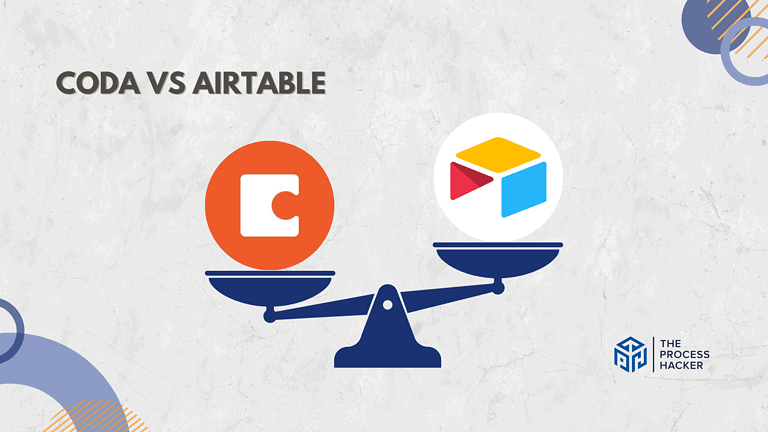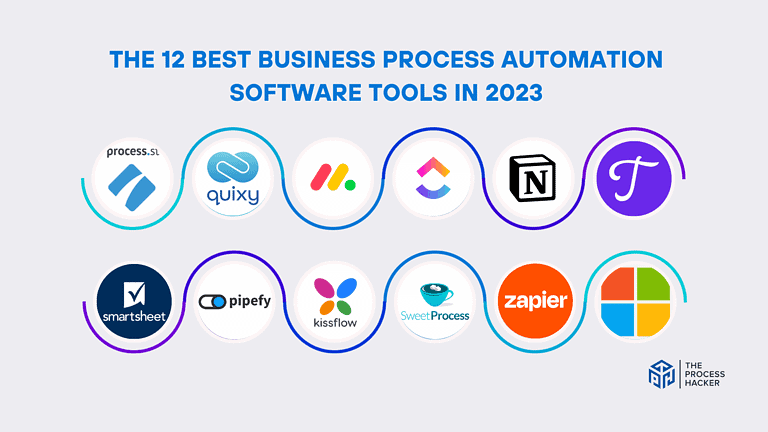What are Managed Cloud Services? Why Should You Get Them?
As an entrepreneur or small business owner, you understand the ever-evolving landscape of technology and how crucial it is to stay ahead of the curve.
That’s why the rise of managed cloud services has been revolutionary in the world of IT Service Management (ITSM) and IT Asset Management (ITAM).
Gone are the days of struggling to maintain and update your own infrastructure. Now, with managed cloud services, you can offload the heavy lifting to a team of experts while reaping the benefits of increased efficiency, scalability, and security.
In this blog post, we’ll explore how managed cloud services transform businesses’ approaches to IT management and why they should be a top consideration for any forward-thinking entrepreneur or small business owner.
Get ready to revolutionize your IT strategy and propel your business to new heights with the power of the cloud!
What is the Cloud?
The cloud is often used in modern technology to refer to internet-based computing.
Rather than storing data and accessing software on a physical device, cloud computing companies like Amazon Web Services (AWS) offer access to their resources on a pay-per-use model. In other words, they allow users to rent computing power, storage space, and other cloud resources based on their needs.
This has several benefits, including the ability to scale up or down as needed easily, access data and applications from anywhere with an internet connection, and reduce the need for expensive hardware and maintenance costs.
In short, cloud environments have revolutionized our thinking about technology and become an integral part of the modern business landscape.
What is a Managed Cloud Service Provider (MSCP)?
A managed cloud services provider allows organizations to outsource partial or complete cloud infrastructure management to third-party providers. This includes services such as cloud storage, computing power, and networking capabilities.
By leveraging cloud service provider MCSP, businesses can benefit from enhanced scalability, reliability, and security without the burden of managing complex infrastructure themselves.
Leading cloud-managed services providers like Amazon Web Services (AWS), Microsoft Azure, and Google Cloud Platform (GCP) offer a wide range of cloud deployment services tailored to the specific needs of businesses across various industries. From Infrastructure as a Service (IaaS) to Platform as a Service (PaaS) and Software as a Service (SaaS), these providers empower organizations to focus on their core competencies while leaving the technical complexities to experts.
What are Dedicated Servers?
On the other hand, dedicated servers provide businesses exclusive access to physical servers hosted in data centers. Dedicated servers offer unparalleled performance, reliability, and security, unlike shared hosting or virtual private servers (VPS). This makes them ideal for organizations with demanding workloads or stringent security requirements.
Providers like Liquid Web, OVHcloud, and Rackspace offer a range of dedicated server solutions tailored to the needs of businesses of all sizes. From single-tenant servers to enterprise-grade configurations, these providers ensure businesses have the resources to support their operations effectively.
The Problem with Traditional IT Management
Despite the benefits of managed cloud services and dedicated servers, traditional approaches to IT management often fall short of meeting the evolving needs of modern businesses. Legacy systems and manual processes can hinder agility, scalability, and innovation, creating a significant gap between IT capabilities and business objectives.
Challenges such as siloed data, lack of visibility, and limited automation can impede the effectiveness of IT management practices, leading to inefficiencies, increased costs, and compliance risks. To remain competitive in today’s digital economy, organizations must embrace innovative solutions that bridge this gap and enable them to harness the full potential of their IT resources.
What Are The Benefits of Hiring Managed Cloud Service Providers?
Managed cloud services are pivotal in bridging the gap by providing organizations with the flexibility, scalability, and agility they need to adapt to changing business requirements. By outsourcing cloud management infrastructure to experienced providers, businesses can focus on strategic initiatives and innovation rather than worrying about infrastructure maintenance and management.
Addressing Scalability and Flexibility Issues
Managed cloud services or managed service providers enable organizations to scale their IT resources up or down based on demand, ensuring they have the necessary capacity when needed without over-provisioning or underutilization.
Enhancing Security and Compliance Measures
Managed service provider employs robust security measures, cloud migration, and compliance standards to protect sensitive data and ensure regulatory compliance, allowing organizations to mitigate risks and maintain the integrity of their IT environment.
Improving Cost-efficiency
By hiring a provider who offers managed cloud services, organizations can reduce capital expenditures on hardware and infrastructure while benefiting from predictable, pay-as-you-go pricing models. This helps them optimize their IT spending and maximize ROI.
What Are The Benefits of Dedicated Servers?
Dedicated servers complement managed cloud services by providing organizations with dedicated resources and complete control over their IT environment. Unlike shared or virtualized environments, dedicated servers offer businesses the performance, reliability, and security they need to support mission-critical workloads and applications.
Boosting Performance and Reliability
With dedicated servers, organizations can ensure consistent performance and reliability for their applications and services, minimize downtime, and ensure a seamless user experience.
Ensuring Data Sovereignty and Control
Dedicated servers give organizations complete control over their data and infrastructure, allowing them to comply with data sovereignty requirements and implement custom security policies tailored to their specific needs.
Facilitating Customization and Optimization
Dedicated servers allow organizations to customize their infrastructure to meet their unique requirements, whether optimizing performance for specific workloads or implementing specialized security measures.
Integration of Powerful Software Solutions
In addition to managed cloud services and dedicated servers, powerful software solutions are crucial in enhancing ITSM and ITAM practices. Automation and orchestration tools streamline routine tasks and workflows, reducing manual effort and increasing efficiency.
AI and machine learning capabilities enable organizations to analyze vast amounts of data and derive actionable insights, empowering them to make informed decisions and proactively address issues before they escalate.
Analytics and reporting functionalities provide organizations with valuable visibility into their IT environment, allowing them to monitor performance, track assets, and identify areas for improvement.
Case Studies: Successful Implementations
Organizations across various industries have successfully leveraged managed cloud services, dedicated servers, and powerful software solutions to enhance their IT management practices. From small startups to multinational corporations, these organizations have achieved tangible benefits such as improved agility, reduced costs, and enhanced security.
For example, a leading e-commerce company migrated its infrastructure to a managed cloud environment, resulting in a 30% reduction in operational costs and a 50% increase in scalability. By outsourcing its cloud infrastructure management to a trusted provider, the company focused on delivering innovative products and services to its customers while ensuring the security and reliability of its IT environment.
Managed Cloud Services vs Dedicated Servers
| Criteria | Managed Cloud Services | Dedicated Servers |
| Scalability | 9/10 | 7/10 |
| Performance | 8/10 | 9/10 |
| Reliability | 9/10 | 9/10 |
| Security | 9/10 | 8/10 |
| Cost-effectiveness | 8/10 | 7/10 |
| Control | 7/10 | 9/10 |
| Customization | 7/10 | 9/10 |
| Compliance | 8/10 | 8/10 |
| Automation capabilities | 8/10 | 7/10 |
| Support | 9/10 | 8/10 |
Future Trends and Innovations in IT Management
Looking ahead, the future of IT management is characterized by continued innovation and evolution. Emerging technologies such as edge computing, serverless architecture, and containerization reshape how organizations manage and optimize their IT resources.
Additionally, trends such as multi-cloud adoption, hybrid IT environments, and the proliferation of Internet of Things (IoT) devices drive the need for more robust and flexible IT management solutions.
By embracing these trends and leveraging innovative technologies, organizations can stay ahead of the curve and position themselves for success in an increasingly digital world.
Final Thoughts on Managed Cloud Services

In conclusion, it’s clear that managed cloud services and dedicated servers are not just tools for IT management but game-changers for businesses.
By partnering with experienced providers and leveraging cutting-edge software solutions, organizations can effectively bridge the gap between their IT capabilities and business objectives for more tremendous success. These services offer numerous benefits, including enhanced agility, scalability, and innovation, while reducing costs and mitigating risks.
As the demand for digital transformation continues to rise, businesses must use managed cloud services and dedicated servers to stay ahead of the curve. So why wait?
Take control of your IT management and boost your business growth by investing in these revolutionary solutions today!
Don’t miss out on the opportunity to revolutionize your business—get managed cloud services and dedicated servers now!
FAQs on Cloud Resources & Services
What are managed cloud services and dedicated servers?
Managed cloud services involve outsourcing cloud infrastructure partial or complete management to third-party providers, while dedicated servers provide organizations exclusive access to physical servers hosted in data centers.
How do managed cloud services and dedicated servers benefit IT management practices?
Managed cloud services and dedicated servers offer enhanced scalability, flexibility, performance, reliability, and security, enabling organizations to optimize their IT resources and effectively support their business objectives.
What role do robust software solutions play in IT management?
Powerful software solutions, such as automation, AI, and analytics tools, streamline IT management processes, increasing efficiency, visibility, and decision-making capabilities.
Can you provide examples of organizations successfully implementing managed cloud services and dedicated servers?
Many organizations across various industries have significantly benefited from leveraging managed cloud services and dedicated servers, including cost savings, improved agility, and enhanced security.
What are some future trends and innovations in IT management?
Future trends include edge computing, serverless architecture, multi-cloud adoption, and hybrid IT environments, which drive the need for more robust and flexible IT management solutions.







